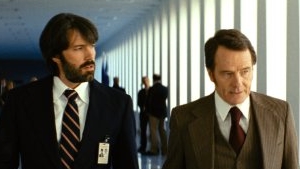 Mark Twain once opined that truth is stranger than fiction, and if we accept his sentiment then Argo could be considered one of the most bizarre slices of reality ever portrayed on film. Did you ever hear the one about how the CIA enlisted the likes of John Chambers and Jack Kirby to whisk stranded Americans out of hostile territory at the height of the 1979 Iran hostage crisis? On paper, Argo‘s plot reads like something cooked up by the Coen brothers and Armando Iannuci, an episodic farce about the irreverent ludicrousness of government and the ignorant cruelty of humanity on an international stage; of course, the helmsman here is none other than Ben Affleck, and he happens to be telling a very real story with very genuine intentions. Clearly, Twain is on the Boston boy’s side.
Mark Twain once opined that truth is stranger than fiction, and if we accept his sentiment then Argo could be considered one of the most bizarre slices of reality ever portrayed on film. Did you ever hear the one about how the CIA enlisted the likes of John Chambers and Jack Kirby to whisk stranded Americans out of hostile territory at the height of the 1979 Iran hostage crisis? On paper, Argo‘s plot reads like something cooked up by the Coen brothers and Armando Iannuci, an episodic farce about the irreverent ludicrousness of government and the ignorant cruelty of humanity on an international stage; of course, the helmsman here is none other than Ben Affleck, and he happens to be telling a very real story with very genuine intentions. Clearly, Twain is on the Boston boy’s side.
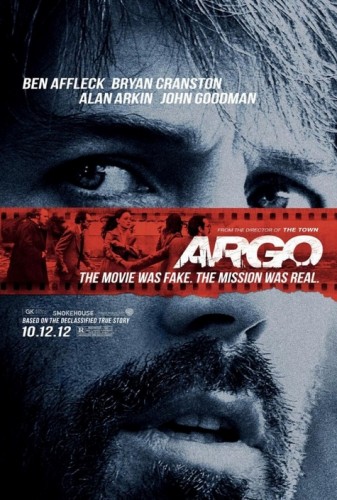 If you aren’t familiar with the events Argo depicts, you don’t need to be. Affleck is a careful, considered filmmaker, and while he’s not the type to hand-hold his audience, he’s smart enough to realize that his film’s foundation relies on historical background. Fortunately, he’s also clever enough to sneak all of the detail necessary to contextualize Argo‘s central diplomatic dilemma into a vivid, succinct opening sequence that summarizes what exactly lead to the hostile takeover of the US embassy in Tehran before reenacting that fateful raid before our very eyes. And from there the rest of Argo‘s many pieces fall into place as the CIA initiates a joint operation with the Canadian government to usher six US diplomats who escaped in the fracas out of an outraged, volatile Iran, using the most utterly gonzo plan possible.
If you aren’t familiar with the events Argo depicts, you don’t need to be. Affleck is a careful, considered filmmaker, and while he’s not the type to hand-hold his audience, he’s smart enough to realize that his film’s foundation relies on historical background. Fortunately, he’s also clever enough to sneak all of the detail necessary to contextualize Argo‘s central diplomatic dilemma into a vivid, succinct opening sequence that summarizes what exactly lead to the hostile takeover of the US embassy in Tehran before reenacting that fateful raid before our very eyes. And from there the rest of Argo‘s many pieces fall into place as the CIA initiates a joint operation with the Canadian government to usher six US diplomats who escaped in the fracas out of an outraged, volatile Iran, using the most utterly gonzo plan possible.
There’s nothing boilerplate or routine about using a movie production as a false cover to exfiltrate stranded Americans and remove them from a hostile situation, but that’s precisely what happens in Argo and what happened more than thirty years ago. “It’s the best bad idea we have by far,” quips Bryan Cranston as he tries to persuade the Secretary of State to sign off on the mission when all other options– including a bike ride several hundred miles to the Turkish border– are found to be lacking in sense and credibility. It’s a dry line delivered by Cranston with dignified chagrin, but despite how loony the plan sounded to government officials of the time, despite their incredulity, despite every assurance and fear that it would fail, they authorized it and it worked. Maybe that’s more incredible than the fact that someone concocted the scheme with a straight face in the first place.
“Someone”, of course, is Tony Mendez, here brought to life by Affleck’s low key brand of shaggy charm. Mendez, candid and earnest, believes sincerely that he can get the marooned and endangered diplomats home safely; to him, the question isn’t one of “will it work?” but rather “how do we get it done?”. It’s easy to like this man, partly because he’s exactly the sort of character Affleck should be playing and partly because he’s the least cynical and least jaded person in the entire film. Forget about Mendez’s peers, who naturally think his designs are daft; between our nation’s clandestine network of spies and Hollywood, the latter proves the more biting entity. 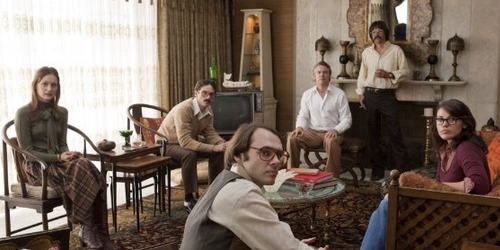 By its very nature, Argo is a movie about movies, but unlike films such as Hugo and The Artist, Argo wears a smirk of derision. Affleck conveys the joy and wonder of the cinema well– he’s inspired to offer his proposal for rescue after watching Planet of the Apes— but when Mendez arrives in Tinseltown, he liaisons with the aforementioned Chambers (John Goodman) and Lester Siegel (Alan Arkin), and that timbre changes. Chambers is, of course, the Academy Award winning makeup artist, while Siegel reads like a cranky director composite of who knows who; their entrance into the narrative introduces critical tones to the film, serving as a dismissal of Hollywood that’s both oddly-placed and compelling while also suggesting a level of decay and decline in the studio system of the day.
By its very nature, Argo is a movie about movies, but unlike films such as Hugo and The Artist, Argo wears a smirk of derision. Affleck conveys the joy and wonder of the cinema well– he’s inspired to offer his proposal for rescue after watching Planet of the Apes— but when Mendez arrives in Tinseltown, he liaisons with the aforementioned Chambers (John Goodman) and Lester Siegel (Alan Arkin), and that timbre changes. Chambers is, of course, the Academy Award winning makeup artist, while Siegel reads like a cranky director composite of who knows who; their entrance into the narrative introduces critical tones to the film, serving as a dismissal of Hollywood that’s both oddly-placed and compelling while also suggesting a level of decay and decline in the studio system of the day.
All of this is nestled within the overarching plot, and Affleck wisely backgrounds those elements in favor of superb tension. To that end, I’m not sure that I’ve seen another film this year so deft at inciting nail-biting and raising pulses, which should be taken as doubly high praise; Affleck not only displays impeccable skill at fostering suspense and raising stakes over time, but he achieves both feats while telling a story whose ending we already know. Making a film about a real-world event is one thing, but instilling that film with affecting, engrossing, gripping uncertainty is another entirely. 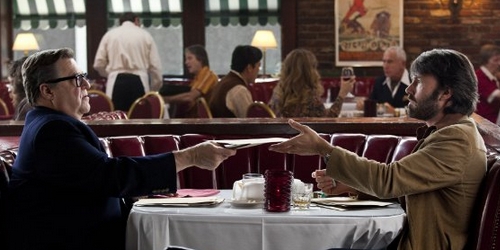 So then it goes without saying that Affleck is Argo‘s star. Of course he is; he’s playing the hero. But he’s also headlining a film that’s packed to the gills with performers ranging from Goodman, Arkin, and Cranston to Phillip Baker Hall and Victor Garber. There’s no shortage of talent here, but as Argo‘s architect Affleck has one up on his cast. Since 2007, Affleck has been enjoying one very long last laugh at the expense of his critics, who have heaped scorn (rightfully so) on the Armageddons and Pearl Harbors of his life; then, five years ago, he got behind a camera and revealed himself as a gifted storyteller. Gone Baby Gone and The Town are both intimate, personal stories, and at its core Argo is too, but Affleck folds the micro into the macro and operates on a scope and scale far beyond anything he’s undertaken before.
So then it goes without saying that Affleck is Argo‘s star. Of course he is; he’s playing the hero. But he’s also headlining a film that’s packed to the gills with performers ranging from Goodman, Arkin, and Cranston to Phillip Baker Hall and Victor Garber. There’s no shortage of talent here, but as Argo‘s architect Affleck has one up on his cast. Since 2007, Affleck has been enjoying one very long last laugh at the expense of his critics, who have heaped scorn (rightfully so) on the Armageddons and Pearl Harbors of his life; then, five years ago, he got behind a camera and revealed himself as a gifted storyteller. Gone Baby Gone and The Town are both intimate, personal stories, and at its core Argo is too, but Affleck folds the micro into the macro and operates on a scope and scale far beyond anything he’s undertaken before.
G-S-T RULING:
Which pegs Argo as his most ambitious project to date. There’s still plenty of room to discuss Argo‘s standing in his body of work, but there’s no disputing that the film represents a massive leap forward for him as an artist, and outside of conversations of quality that’s probably going to be its greatest talking point. Gone Baby Gone and The Town showed that he has filmmaking chops; with Argo, he’s emerged as one of America’s most important contemporary directors.

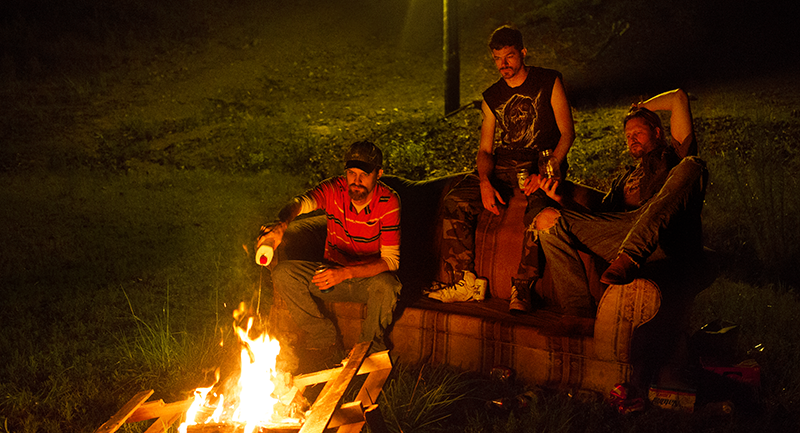
4 Comments
VictorsMovieReviews
Great review for a great film.
Andrew Crump
Thank you kindly, Victor!
Dan O'Neill
Good review Andrew. It’s a great film, no doubt about that, but there wasn’t much else going for it except for the fact that it’s a true-story, and a bizarre one at that. Nothing else really, although Affleck directs his ass off to make us think otherwise.
Andrew Crump
Fantastic acting from a really stacked cast, too, I think, but generally a film needs either a great script, great performances, or great direction to really work, and Argo has all three.
Personally, I liked that it had anything to say about Hollywood at all (and you could read the ridiculous ending, which works like gangbusters even if you distance yourself from and realize that it’s kind of absurd, as a comment on the kind of movies we see Hollywood putting out throughout the rest of the picture) and didn’t just use filmmaking as a plot device. And it also contextualizes the Iranian outrage very, very well, instead of just presenting the Iranian people as some angry nebulous “other”.